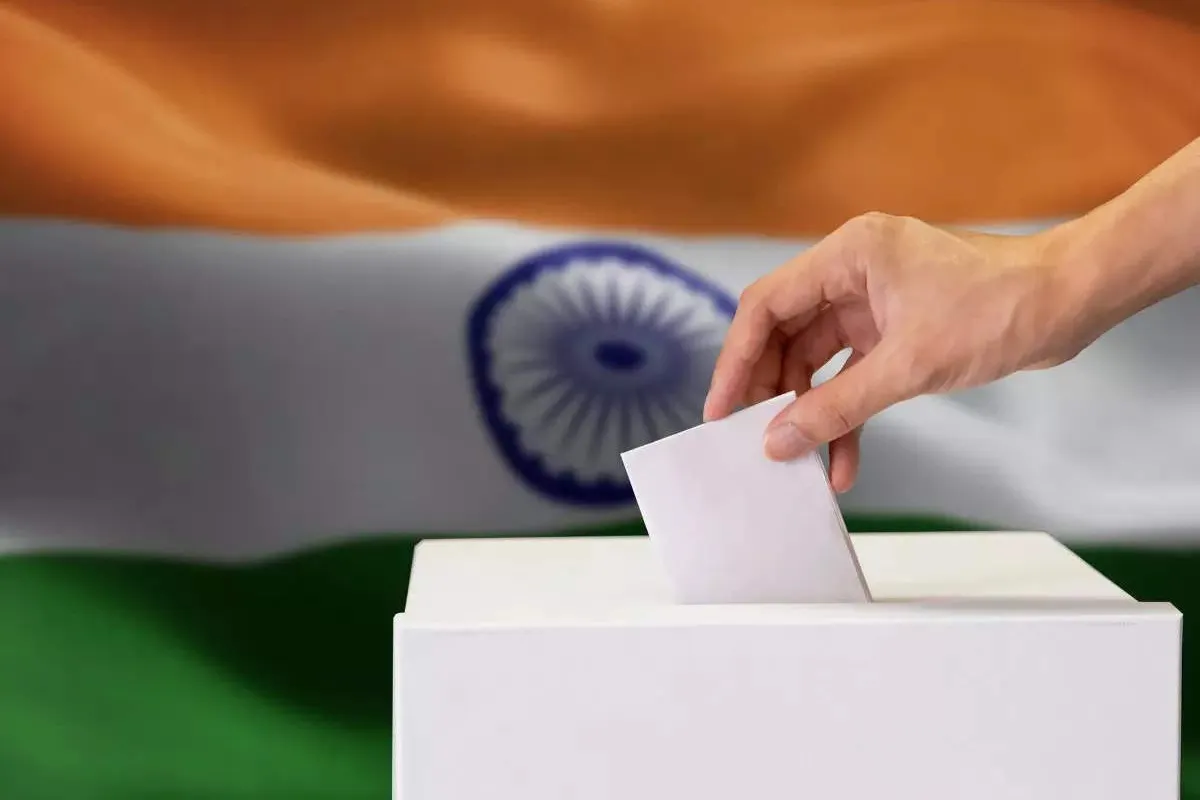The 2024 Lok Sabha elections in India hold immense significance, and at the heart of this political crucible lies the enigmatic landscape of Muslim voting behavior. While historical narratives often portrayed a homogenous “Muslim vote,” recent trends paint a nuanced picture, revealing a tapestry woven with diverse influences that transcend simplistic generalisations. Delving into this intricate maze demands an exploration of various factors beyond solely focusing on caste, which will likely shape Muslim voters choices in the upcoming elections 2024.
What BJP is Eyeing for the 2024 Lok Sabha Elections
Prime Minister Narendra Modi expressed confidence in the Bharatiya Janata Party’s (BJP) prospects for the upcoming Lok Sabha elections in 2024. During a public rally, he emphasized the party’s aim to surpass the 370-seat mark, with even opposition leaders suggesting the ruling coalition could achieve over 400 seats.
BJP vs Congress: Muslim Vote Share Count
According to a survey conducted by Lokniti-CSDS during the 2014 Lok Sabha elections, the BJP saw a significant increase in its share of Muslim votes, doubling from the previous election in 2009. In contrast, the Congress maintained a steady vote share among Muslims, with no change between the two elections. Specifically, the BJP secured 9% of Muslim votes in 2014, compared to 4% in 2009, while the Congress retained a 38% share of the Muslim vote across both elections.
Exploring the Spectrum of Diversity
Prior to 2019, Muslim voting exhibited significant fragmentation, influenced by factors like electoral context, individual candidate prospects, and internal community dynamics. However, the BJP’s decisive victory in that election triggered a shift. Studies reveal increased Muslim support for opposition parties in subsequent state elections, suggesting a form of consolidation.
State Elections Tell a Different Story
While national trends hint at consolidation, examining individual state elections paints a more nuanced picture. Research by CSDS-Lokniti reveals that in Bihar, West Bengal, and Uttar Pradesh, around 75-79% of Muslims voted for the parties opposing the BJP in recent assembly elections. This trend coincides with the rise of the BJP and its Hindu majoritarian ideology, suggesting a strategic response from specific Muslim segments.
Understanding the Drivers of Muslim Voting
Several factors play a role in shaping Muslim voting decisions. Some scholars emphasize the electoral context and individual candidate potential, focusing on how Muslims strategically navigate the political landscape. Others highlight internal divisions within the community, like the presence of coethnic representatives, which can influence voting patterns. This explainer, however, zooms in on a distinct and often overlooked factor: caste.
Caste: A Sub-identity Gaining Traction
Muslim society is stratified by caste, broadly categorized into Ashraf (upper caste), Ajlaf (Other Backward Class, OBC), and Arzal (Dalit). The Pasmanda movement, advocating for non-Ashraf Muslims (Ajlaf and Arzal), has gained momentum, highlighting the relevance of caste as a sub-identity within the community.
Socioeconomic Inequalities and Political Activism
The Sachar Committee Report underscores the educational and economic disparities between Muslims and Hindus, with OBC Muslims faring worse than both groups. This fuels socio-economic anxieties and motivates political activism along caste lines. The Pasmanda movement, for instance, seeks to address the marginalisation faced by non-Ashraf Muslims within broader Indian society.
Political Mobilisation: Targeting the Pasmandas
Both the BJP and opposition parties recognise the potential of caste-based mobilisation within the Muslim community. The BJP’s recent outreach towards Pasmandas, including events with prominent figures and targeted messaging, marks a significant shift in its strategy. Meanwhile, opposition parties are strategising countermeasures to retain the support of this segment.
Pasmanda Response and Internal Divisions
The Pasmanda community’s response to the BJP’s outreach has been mixed. While some view it as an opportunity for addressing their grievances, others remain skeptical due to concerns about the party’s past record on communal issues. The 2022 Uttar Pradesh survey reveals a difference in BJP support between Ashraf and Pasmanda Muslims, highlighting internal divisions within the community.
Caste-Based Solidarity: Strong Within, Less With Religion
The survey also explored the notion of “linked fate,” an indicator of how individuals within a group perceive their well-being linked to that of the group as a whole. Interestingly, the survey revealed high levels of “linked fate” based on caste among Pasmanda Muslims, meaning they believe improvements or setbacks for their subcaste would impact them individually. However, this sense of solidarity was stronger within caste than with their broader religious identity, suggesting complex dynamics at play.
Caste and the 2024 Elections
While it’s unlikely that Muslims will vote solely based on caste in 2024, its growing salience cannot be ignored. The BJP’s Pasmanda outreach and potential counter-mobilisation by opposition parties suggest that caste will play a significant role in shaping both campaigning and voting behavior.
Rethinking Muslim Voting Behavior
The concept of a monolithic Muslim bloc may need to be retired. Understanding the nuanced interplay of religion, caste, and other sub-identities is crucial for accurately predicting Muslim voting behavior in the upcoming elections and beyond












